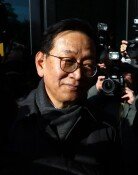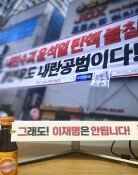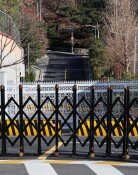Impatience will get us no Nobel Prize
Impatience will get us no Nobel Prize
Posted October. 23, 2015 07:54,
President Park Geun-hye said at a meeting on Thursday of the Presidential Advisory Council on Education, Science & Technology that Korea`s basic sciences are still on an "unsatisfactory" level, calling on the government to create a stable research environment, in which scientists can steadily concentrate on their research.
Koreans have enviously witnessed two Japanese scientists winning Nobel science prizes and a Chinese scientist grabbing China`s first Nobel Prize in Physiology or Medicine, keenly realizing that their country is lagging behind traditional science powerhouse Japan and an emerging science power China. In terms of research budget, Korea`s support of basic sciences is never small. It invests 4.15 percent of its gross domestic product in research and development projects, the highest percentage in the world. Despite the heavy investment, Korean scientists have yet to produce world-class research results or develop core technologies mainly because of the government`s top-down distribution of scientific research funds.
The previous Lee Myung-bak administration implemented the "Nobel Prize Project," in which the government provided 10 billion won (8.8 million U.S. dollars) a year to each of 50 scientists selected for their research accomplishments for 10 years. However, such an approach was criticized for killing grassroots research, as many scientists focused only on government projects to win funds at the expense of research independence and originality. "If a Korean scientist wins a Nobel Prize, he or she would not be from the prestigious Seoul National University, the Korea Advanced Institute of Science and Technology or Pohang University of Science and Technology." said Ryoji Noyori, the winner of the 2001 Nobel Prize in Chemistry who heads Japan`s Center for Research and Development Strategy, during his recent visit to Korea. His projection that scientists conducting original research will have greater chances of winning a Nobel Prize than those at prestigious universities in fierce competition with similar projects speaks volume.
Korea needs to make a paradigm shift from becoming a "fast follower" to a "first mover" in the basic research fields, too. Over the last 10 years, 48 of the 78 Nobel science prize winners won the honor with their research accomplishments achieved in their 20s or 30s. Basic research must be supported with very long-term perspectives without taking politics into consideration.
Tim Hunt, who was awarded the 2001 Nobel Prize in Physiology or Medicine and an honorary professor at Cambridge University, said that Nobel Prizes are found in fields that you didn`t know existed. The motto of Germany`s Max Planck Institute, which has produced 32 Nobel laureates since its establishment in 1911, is "support but not intervene."
The government should ditch its Nobel Prize impatience so that Korean scientists can take a big strike toward the honor.
Headline News
- Joint investigation headquarters asks Yoon to appear at the investigation office
- KDIC colonel: Cable ties and hoods to control NEC staff were prepared
- Results of real estate development diverged by accessibility to Gangnam
- New budget proposal reflecting Trump’s demand rejected
- Son Heung-min scores winning corner kick







